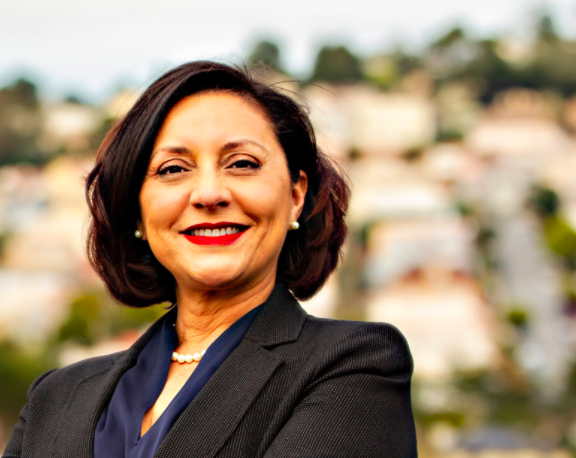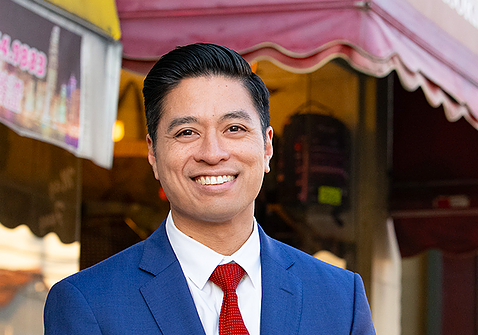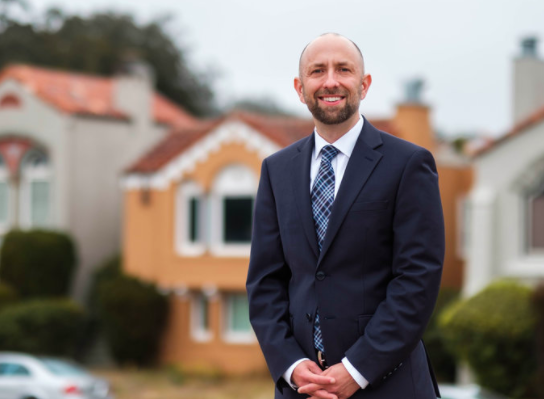The latest campaign finance reports—which show a lot about how state and local races are shaping up—are now on file, and they indicate some important, if unsurprising, patterns.
We will be looking at the key races this week – the Jackie Fielder and Scott Wiener for state Senate and the three tightly contested supes races in Districts 1, 7, and 11. Fielder has raised a very respectable $263,000 since January, and Wiener has raised $414,000. But the incumbent had vast sums in his account already, and has already spent almost $800,000, with plenty remaining.

Much of Wiener’s money comes from the real-estate industry. More on that tomorrow.
For now, let’s start with D7, which is shaping up to be a three-way contest between Joel Engardio, Myrna Melgar, and Vilaska Nguyen. All three have raised plenty of money. All three will almost certainly qualify for the limit of $250,000 in public matching funds. All three will be able to get their messages out – although local supes campaigns, which are often won on the ground, will be much harder this year with COVID restrictions making traditional door-to-door outreach and street-corner handshaking impossible.
Emily Murase, a former School Board member, has raised about $50,000, but roughly half of that represents money transferred from an earlier Board of Education campaign. Ben Matrenga raised only $30,000.

Campaign donations come in several types. Lots of people who are neither rich nor powerful simply give small amounts of money to candidates who share their deep political beliefs. That’s how Bernie Sanders raised so much money. It also happens on the local level, and sometimes at the state level.
Then there are the lobbyists and PACs and corporations and special interests, who give money (mostly on the state and federal level, since corporate contributions are banned in SF races) so they can buy access to politicians, and in many cases, so they can influence the outcome of legislation.
There’s a reason it’s almost impossible to get pro-tenant bills passed in the California Legislature; the real-estate industry pours tens of millions into Assembly and Senate campaigns. Same goes for Big Oil, Big Pharma, and a lot of other industries.

Then there are the individuals and groups – and we see this a lot in SF politics – who support candidates because they believe those candidates will be the most likely to promote their financial and political interests.
I don’t think the real-estate industry thinks Wiener will vote with them because they gave him money. I think the real-estate industry gives him money because they know he’s likely to vote with them anyway and they want him in office.
So it’s a complicated mix – but patterns of donations tend to reflect where donors think candidates stand on the issues. If a candidate for supe gets a lot of money from developers, then it shows that the developers (who are no fools) think that candidate will be likely to represent their interests at City Hall.
Here’s what I see in the D7 fundraising reports:
Nguyen raised the most money in this period, $103,000. Melgar was next, with $73,000. Engardio reported $32,000.
All of that is a bit misleading: Engardio started running more than a year ago, and has actually raised $95,000 this year. And while Engardio notes that he has the most money in the bank, still available for spending ($252,000) that’s because he started so early that he’s already received most of his public financing.
The other two candidates will be getting that money in the next few weeks, and will also have plenty to spend this fall.
The negative rap on Nguyen in the early days of the campaign was that he wasn’t electable — a public defender who has never held any office running in one of the most conservative districts in the city. But he’s clearly demonstrated that he’s a top-tier candidate at this point
I think it’s fair to say – and all the candidates agreed with me when I called them today – that the single biggest source of Melgar’s money is city employees and nonprofit workers, the single largest source of Nguyen’s money is lawyers, mostly public defenders, and the single largest source of Engardio’s money is retired conservative homeowners and the real-estate industry.
Those are their networks. Melgar is a former city worker and nonprofit director. Nguyen is a public defender involved in criminal justice reform. Engardio is running strongly as the most conservative candidate, talking about the need for more law-enforcement and public safety and defending single-family zoning.
Sen. Scott Wiener has endorsed Engardio – but I see no indication that Wiener’s massive fundraising machinery is involved in this race. It looks to me as if Wiener’s support for Engardio is fairly limited; the senator voted for Melgar at the DCCC.
It’s hard to determine exactly what is “real-estate” money, but I define it as contributions from real-estate agents, developers, contractors and architects, as well as lawyers who regularly represent that industry. I know it’s a bit fuzzy; it’s the best we can do.
By that standard, Melgar got about $4,000 in real-estate money – that’s about five percent. (It’s hard to run for office in this city and not get some real-estate money.)
Nguyen got less than $1,000.
Engardio received about $5,000 in real-estate money out of the $32,000 he reported this period – that’s 15 percent. Which suggests very strongly that the real-estate industry thinks he is the best candidate in D7.
The politics of the Board of Supes and its future are on display here: Outgoing Sup. Sandra Lee Fewer gave Melgar $500, and Sups. Gordon Mar, Aaron Peskin, and Norman Yee also chipped in $250. Sups. Hillary Ronen ($250), Dean Preston ($500), and Matt Haney ($500) gave money to Nguyen.
Melgar also got $500 from Assemblymember David Chiu, and Nguyen got donations from Public Defender Mano Raju, former Sup. (and current Democratic Party Chair) David Campos, and former Sup. (and current D11 candidate) John Avalos.
Again, this is not surprising – that’s how the endorsements have broken.
Part of what’s going on here, I think, is the battle for who will be the next board president. The progressives would like to see Ronen or Haney; the moderates would like to see someone who is closer to the mayor. The supporters of Ronen or Haney are largely with Nguyen.
On the other hand, Mar is one of the most solid progressive votes on the board, and he’s with Melgar.
(In the largely irrelevant world of celebrity donors, Dave Eggers gave $250 to Nguyen, who met the author when he created a mock-trial program at 821 Valencia. “I am very proud to have Dave’s support,” Vilaska told me.)
Here’s what’s interesting:
Both Melgar and Nguyen are spending money, now. They are taking the cash that comes in and putting it into staff, consultants, field operations and mail.
“We have an active field operation, families reaching out to families,” Nguyen told me. “We have two mail pieces that we have sent out to every voter in the district.”
Melgar told me the same thing: “We are working really hard on our voter-contact and field operation.”
Both have hired campaign managers and well-known consultants (Nguyen has Nate Albee, Melgar has Mark Mosher and John Whitehurst.) They are looking at the end of the campaign not as Nov. 3 but as Oct. 1. That’s when the vote-by-mail ballots will drop.
Engardio has been keeping his money in the bank, has one full-time staff person and no consultant, and is only now starting to spend.
It’s going to be a weird campaign – you can’t go out and meet voters, you can’t hold rallies, you can’t shake hands – and if you send mail to voters in October, it may be a waste of money.
Most organizers are urging voters – and every one of us in this state will get a mail ballot – to mark and send those ballots in early. If Trump, as he has hinted, will mess with the Post Office and cause delays, ballots that wind up in a mailbox Nov. 2 may not be counted.
Engardio told me he’s “starting to write checks.”
Bottom line: It’s still a three-way race in D7, but Engardio, who started first and technically has the most money in the bank, is looking like the furthest behind.





